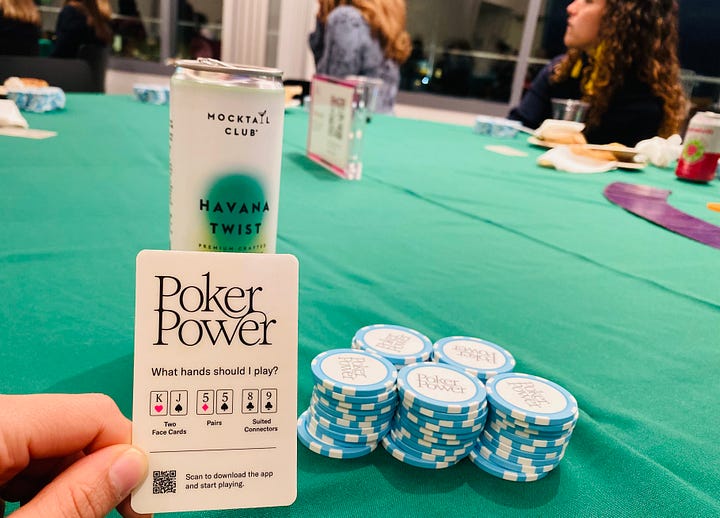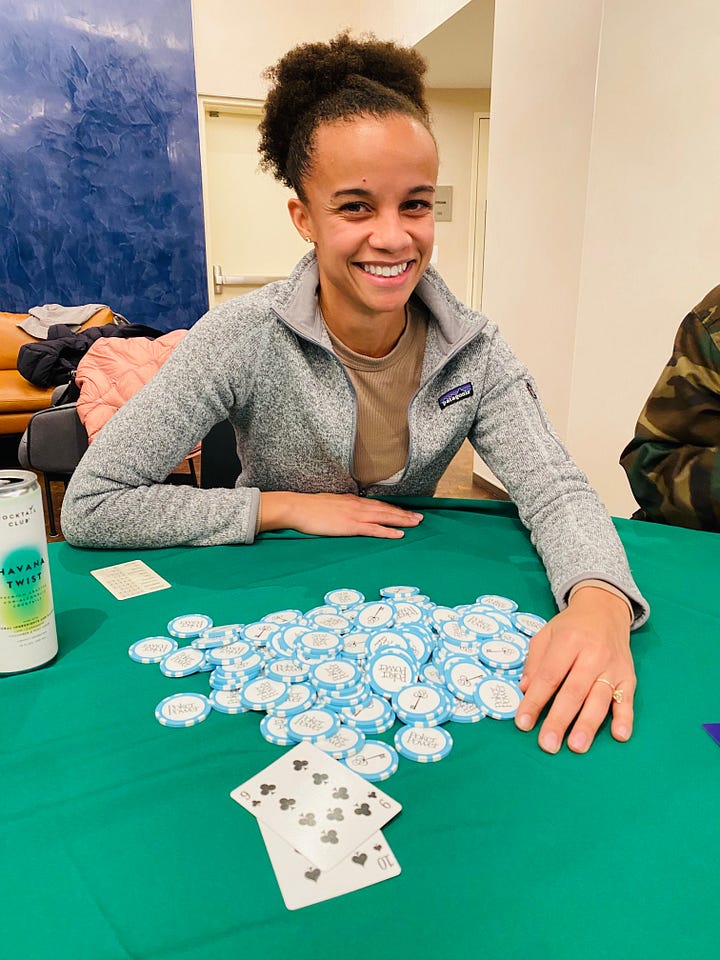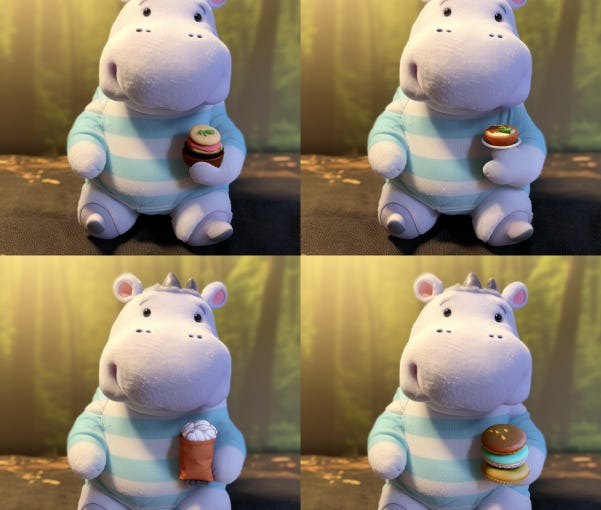start again today no. 87: poker power
poker, strategy, 👼🏽, AI cartoonist, identity, 🦄 club
Poker skills are life skills.
That was the premise for the poker power workshop we hosted for our DC All Raise investor community this week.
negotiation
decision making
risk assessment
confidence
reading people
discipline


According to Annie Duke, a good player folds about 80% of the time.
Poker is a fast teacher, with quick feedback from decisions and actions. Our learning was further accelerated by open-hand games facilitated by teachers at each table talking us through probabilities to decide whether to call, raise or fold.
In venture, we fold 99% of the time.
Venture is slower, a 10+ year game. Short-term outcomes in the form of markups or high-signal co-investors/hires are often red herrings. Having a team to show your cards to can help you focus on the quality of your decisions without knowing the long-term outcomes.
Later today, I’m headed to SF to meet with our investment team for a few days. A big focus is putting our cards on the table: talking through the investments we’ve made across our three funds and learnings from the decisions we’ve made to call, raise or fold.
In prepping for that conversation, I’m looking back at notes, memos and updates from my own VC and 👼🏽 portfolio.
When I started 👼🏽 investing in 2020, I probably played the hand 50% of the time. My worst economic decisions have been overly emotional; based on the founder and mission vs the market and math.
My taste and decision-making is improving by making a lot of bets, getting feedback (and better hands) from a lot of people, and being curious about how things play out my/our hands and anti-portfolio.
Occasionally, an opportunity arises to take a bet at the intersection of market, math and mission with a great team. It’s early days, but I’m betting on Coral Care to build something big for children’s development specialists and the families they support. Congrats to Jen and team on their $1.3m pre-seed!
What I read this week
💡good strategy, bad strategy - Richard Rumelt, UCLA professor interview with Lenny Rachitsky
If you're Microsoft right now and you're trying to adapt to AI, you have a diagnosis. Well, what's going on? You see the challenge of how do we adapt to it? You create a guiding policy that you're going to invest in one of the major leaders and that you're going to begin to incorporate that into your search engine. And then you have coherent actions. You actually do some of these things. It's not rocket science. The difficulty is that companies don't do that.
📈 from seven failures to 10x growth - Dani Grant and Kyle Poyar, cofounders of Jam.dev
We only tracked one metric in the early days: retention.
You can't fake retention. If a product is not useful, you don't retain. Our team tracked usage in a simple Google Sheet and watched for streaks week over week. Only once retention was healthy did we open up Jam to the public.
📚 wintering - Katherine May
Plants and animals don’t fight the winter; they don’t pretend it’s not happening and attempt to carry on living the same lives that they lived in the summer. They prepare. They adapt. They perform extraordinary acts of metamorphosis to get them through.
👼🏽 why millenial women are embracing angel investing - E.B. Boyd, Fast Company
Last year, the Center for Venture Research published new research showing that the proportion of women angels had skyrocketed to 37%, itself a jump from 29% the previous year.
🎨 I’m becoming a cartoonist…with AI - Elizabeth Yin, Hustle Fund
Generative AI tools are, by definition, horrible at creating images that don’t really exist, because it has no data to work with.
I think it’s easy as a VC to watch a demo of a product and say “Wow, that image generator can do ABC things.” But really testing the limits and edge cases is important to understand the state of AI and stay on top of who has the lead.
So, if I were going to start a new company today, I would probably not build an AI company — there are so many of them. I would probably build a company that thrives with the assumption there will be a lot of AI companies to help us design and build faster and so much more.
🎥 how AI will help us connect with ourselves & each other - Yohei, Untapped Capital
There’s a few studies that discuss how if you observe an anthill and the ants within them, they act like a neural network. Each ant is a neuron. Their interactions collectively represent an intelligence that has a greater comprehension of the colony’s intent and environment than the capacity of a single ant.
With the emergence of AI, we have a newfound ability, if not reliance, on communicating with an intelligent, collective voice. If you think about it, chatting with an LLM is perhaps the closest thing we have to chatting with our collective unconscious.
🦄 welcome back to the unicorn club: 10 years later - Aileen Lee & Allegra Simon, GPs of Cowboy VC
The cyclical pendulum does swing. Given the hard shift to enterprise, we hope and expect more exciting consumer unicorns will be born in coming years. For inspiration - many of today’s leading consumer internet experiences are ~2 decades old (Ebay, Expedia, Opentable, Tripadvisor, Stubhub, Yelp), possibly fertile territory?
I see you, I love you, keep betting on yourself,
H




